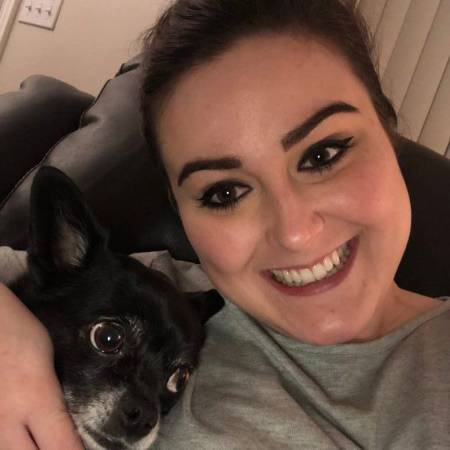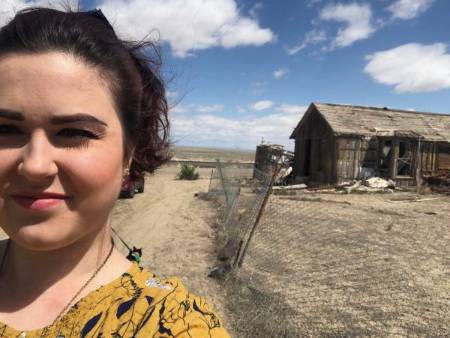Grief And Fibromyalgia

Several years ago, as I was struggling to get a diagnosis for a slew of worsening symptoms, a therapist shared something that has continued to baffle me. He said researchers who study happiness and grief found that within six months after winning the lottery or becoming paralyzed from an injury, people generally returned to the same level of happiness they had before the life-changing experience. The point was, once I was diagnosed and got on a treatment path, I would go back to my old self in terms of my state of mind and emotional well-being. But that hasn’t exactly happened.
After dozens of doctors, piles of medical bills and horrendous medical tests, I was finally correctly diagnosed with Fibromyalgia (also known as FM) in July 2016. But that doctor’s appointment left me gob smacked. He said I’d be lucky if my condition didn’t worsen, which I couldn’t imagine because I was essentially bed-ridden at the time, and that there was very little that could be done for me. I had already tried one of the three FDA approved drugs for FM the first time I was diagnosed with it (which is a whole other ball of yarn), and the side effects were devastating. I didn’t even know about all of the things that FM could cause or co-occur with, which I now know include: dizziness, nausea, slowed digestion; inability to stand for long periods of time; ringing ears; inflammation of the cartilage that connects a rib to the breastbone; severe coldness and numbness; brain fog; irritable bowel syndrome; inability to get restorative sleep; severe fatigue; sensory issues; migraines. The list goes on. This was in addition to the many types of pain FM causes like muscle spasms; joint pain; burning, tingling and prickling of the skin; feeling pain from stimuli that don't normally cause pain.
I did not have much hope after the diagnosis because of the very limited treatment options. I have found it is very difficult to get occupational, massage or physical therapy recommended by a doctor, or non-FDA FM approved drugs (i.e. drugs used for other conditions). My life stopped. I barely survived doing daily functions. Sometimes I didn’t even do those. I felt as if I’d slipped to a new circle of Dante’s hell (I here dub the 10th circle of hell life with FM). Six months passed. While I had come to accept my state of health, rebalanced my life, changed my expectations, and pursued treatment options elsewhere, I did not stop grieving my former self. And it hasn’t changed to this day – nearly two years later.

game of luck. Starting and finishing tasks is a game of chicken."
May is Fibromyalgia Awareness Month, and I want to share something with those struggling with Fibromyalgia—who are many. (Estimates put 3 percent of the population having FM, 90 percent of which are women.) It is ok to grieve. It doesn’t mean you are selfish, dramatic, pathetic, or weak. It means you are human. Here are ten reasons why I think FM specifically causes long-term, if not lifelong, grieving:
- Dysthymia is a kind of low-grade, long-lasting depression that overwhelmingly affects FM sufferers. The suicide rate for FM sufferers is also disturbingly high. The constant pain and changes to abilities and social inclusion contribute to the depression. FM sufferers are also believed by researchers to be more at risk of depression because of an imbalance in the brain’s neurotransmitters. It feels like my brain is on fire some days. My brain actually buzzes and burns.
- FM is an invisible disability. Most days, you can’t look at me and know I’m sick. I’ve decided looking fine to the outside world when you are not is a curse. It makes asking for help or accommodations, especially as a young person, a serious challenge. Often, I just don’t ask. I am too mentally and emotionally fried to explain myself or face the judgement. And I pay for it physically, like the day I found myself lying on a bench at Walmart, unable to move any further. (Trapped sick in Walmart may be the 11th circle of hell.) During primary voting, I should have asked if I could be moved to the front of the line since I am unable to stand for long periods of time, but I just couldn’t deal with the dirty looks. I was forced to ask after nearly passing out, having stood in line for at least an hour. By then, I was too sick to care what others said or thought.
- It is isolating. Because I’m often too ill to physically socialize or do activities, I’m left to my own devices. I talk to the dog a lot and I watch copious amounts of educational television, but sometimes I worry I’m becoming socially backward. Staying at home all the time alone, missing work, family events, community events, etc. is mind-numbingly boring. And because my disability is invisible and complex, it is difficult to include me in things. My list of needed accommodations isn’t little. Also, my inability to relate to others because of the extreme difference my illness causes in my everyday life makes me hesitant to trust or get to know others.
- Most people diagnosed with FM are between 20 and 40 years of age. Being young and sick carries a stigma I never could have guessed. Young people are supposed to go out and do exciting things. I see people around me travelling, getting post-graduate degrees, and just achieving their dreams. I, on the other hand, am having a good day if I can eat, shower, get dressed, etc. and not have a physical meltdown.
- Having FM and other chronic illnesses means navigating the American healthcare system. It has proved to be a spider web of complex billing, confusing and poor insurance coverage, specialists who refer you to another specialist, wait lists, and never ending medical tests. How can I be a self-advocate in this system when I can barely take care of my own physical needs? It’s a cruel joke to have the very system you rely on for healthcare become your enemy.
- All the female dominated chronic illnesses are in the NIH’s bottom forty in funding. Only endometriosis gets lower funding per person (about $1/year) than FM. Relative to the economic losses and sheer amount of suffering caused by these diseases, fibromyalgia may be the worst funded disease at the NIH. This leads to poor treatment options, doctors who aren’t educated on the disease, and difficulty in legitimizing the disease in policy and legal arenas.
- Loss of self-identity is one of the hardest things about FM. When I was bed ridden I used to wonder what I even was besides a broken brain with twitching meat sticks (legs as some people call them). Recently, I was putting together some birthday decorations for my mom and my brain fog caused me to forget how to tie a knot. It took me eight tries before I could remember. I almost broke down bawling. How does a 30 year old forget to tie a knot? I guess I don’t have an answer to the identity question yet because I’m still working on it. But it is a challenge to love yourself and step out of the grief zone when you don’t even know what you are or who you are.
- The loss of social support is a common challenge for people with FM. If you break your arm or get cancer, people send get well cards, bring you casseroles, clean your house, and call or text just to see how you’re doing. This rarely happens for FM sufferers. In part, I think this is because there is not a ‘get well’ in sight for me. My sickness is every day, for the rest of my days. What do you say to someone like me? I don’t even know what to say to me. I have been truly disappointed by those I called friend, though the few I have now are true and unwavering in their support.
- Unpredictability is the hallmark of FM. I never physically feel great. But I vary from “I’m going to crawl out of my own skin because I’m in so much pain, fatigue and physical distress,” to “I feel good enough that I don’t have to scream into a pillow, so I’ll attend your party for a half hour.” And it changes not only from day to day, but hour to hour. This makes leaving home terrifying. Scheduling anything is a game of luck. Starting and finishing tasks is a game of chicken. It mentally takes a toll.
- There is a serious lack of societal acceptance and realistic and fair portrayals of FM in the media. It is still not recognized by some doctors. Many medical schools are just beginning to include FM in their curricula—hence the five-year average diagnosis time of FM. When Lady Gaga came out with her diagnosis of FM last year, I cried tears of joy for having a high-profile woman to lead the charge for FM awareness, and then I cried for her suffering. But this lack of acceptance insidiously imprints itself on my psyche. I find myself censoring what I tell others and expect from them. When I tell people how I'm really doing, they often respond with hideous platitudes (you look fine or you'll get well eventually, which is funny since this is a chronic illness), silence (which feels like apathy to me), or telling me everyone has burdens and to suck it up, for lack of a nicer turn of phrase. I don't expect others to understand, care, or find a way to participate in my life to make it better. If they do so by their own volition, I am thrilled, but I no longer expect it. I have learned the stereotypes that will be applied to me and how society sees me, which in most cases is a hysterical and entitled young female.

So how do I or anyone else with FM move through life in a constant state of grief? I have realized that anything else will have to occur within it. I do find moments of happiness, peace, fulfillment and hope amidst the grief. They occur together and sometimes one diminishes or amplifies the other. But I take what I can get. I also have learned that I don’t have to apologize for living in a state of grief. I now try to live by what the Finnish people call sisu—an inner strength for a difficult moment when you’ve come to the end of your rope.
Some days this means just simply surviving to the next day, which sounds easy, but is in fact the hardest thing I do. I am proud of myself for it. Throwing in the towel and giving up on dreams, goals and myself is always tempting, but I fight through to the next day because I know I can.
If you have someone in your life with FM, know they want to hear you admire their tenacity and that you are there for them on the days they don’t have it. And to FM sufferers, I see you – you are not invisible. I’m wishing you sisu for another day.
Sources:
- Sisu: the art of inner strength (BBC)
- How fibromyalgia got to be the worst funded disease at the NIH (HealthRising)
- Fibrocenter.com
- National Fibromyalgia Association
- The stages of grief after learning you can't be "fixed" (The Mighty)
- Dysthymia and fibromyalgia (Fibromyalgia Treating)
- Fibromyalgia--pathways and neurotransmitters (PubMed)
- Neurotransmitters out of balance in fibromyalgia

